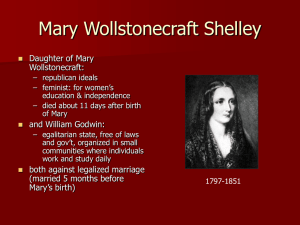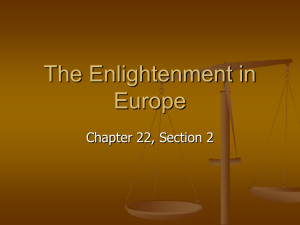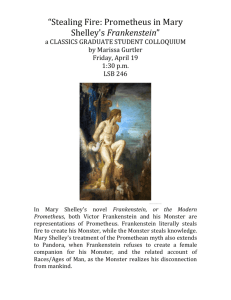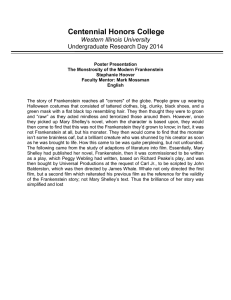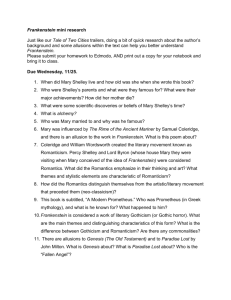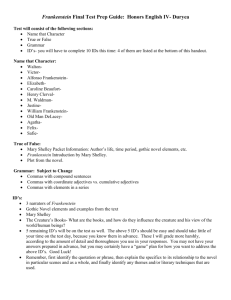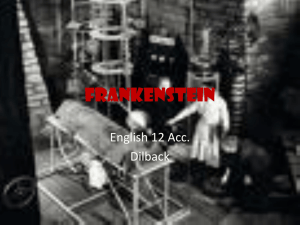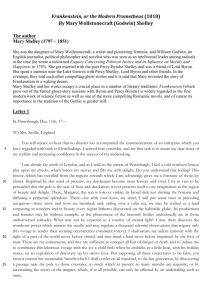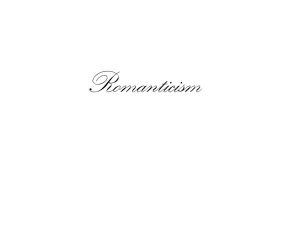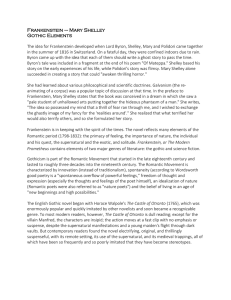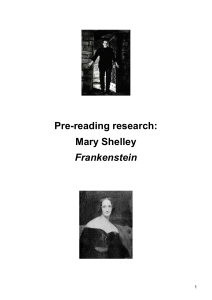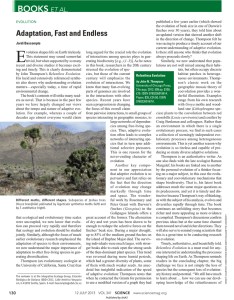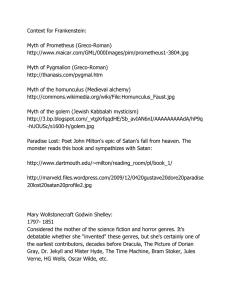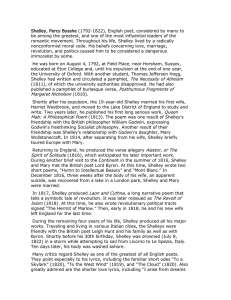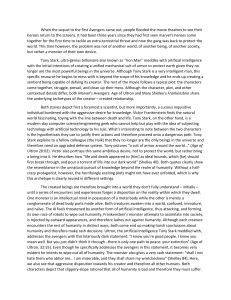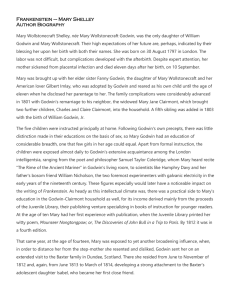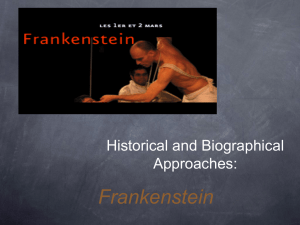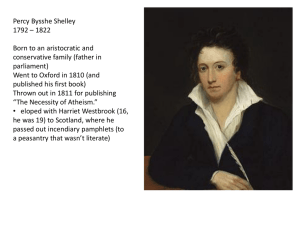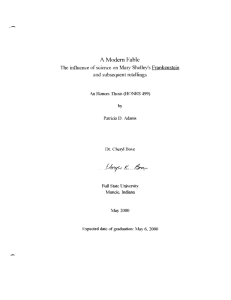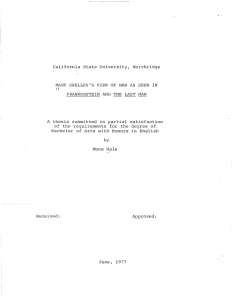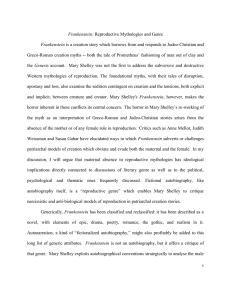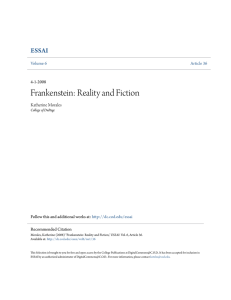Frankenstein: The 1818 Text
advertisement
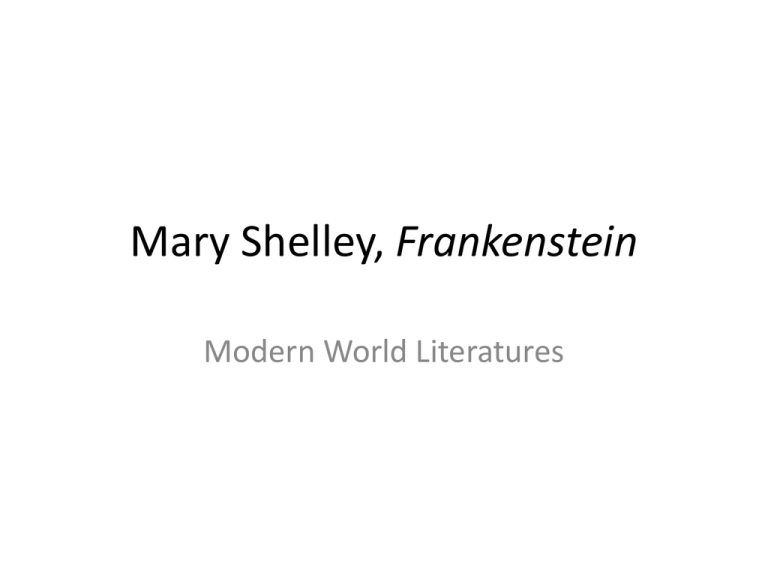
Mary Shelley, Frankenstein Modern World Literatures Royal Institution Lectures, 1801 Quarterly Review, 18 (1818): 457-8, on Arctic exploration: “[Such] expeditions may fail in the main object of the arduous enterprise; but they can scarcely fail in being the means of extending the sphere of human knowledge ... ‘Knowledge is power’; and we may safely commit to the stream of time the beneficial results of its irresistible influence.” Marilyn Butler, “Introduction,” Frankenstein: The 1818 Text (Oxford, 1994), p. xxxv, on the character of Walton: “[The 1818 text] portrays him as a shallow young egotist who complains continuously to the patient sister he has left behind, and all along risks the lives of the family men which make up his crew.” Lawrence-Abernethy controversy: “The motion proper to living bodies, or in one word, life, has its origin in that of its parents.” (Lawrence, An Introduction to Comparative Anatomy, 1816, pp. 140-2) Edmund Burke, Reflections on the Revolution in France (1790) “To squander away the objects which made the happiness of their fellows, would be to them no sacrifice at all. Turbulent, discontented men of quality, in proportion as they are puffed up with personal pride and arrogance, generally despise their own order. One of the first symptoms they discover of a selfish and mischievous ambition, is a profligate disregard of a dignity which they partake with others. To be attached to the subdivision, to love the little platoon we belong to in society, is the first principle (the germ as it were) of public affections. It is the first link in the series by which we proceed towards a love to our country, and to mankind. The interest of that portion of social arrangement is a trust in the hands of all those who compose it; and as none but bad men would justify it in abuse, none but traitors would barter it away for their own personal advantage.” Mary Gaskell, Mary Barton (1848) “The actions of the uneducated seem to me typified in those of Frankenstein, that monster of many human qualities, ungifted with a soul, a knowledge of the difference between good and evil. The people rise up to life; they irritate us, they terrify us, and we become their enemies. Then in the sorrowful moment of our triumphant power, their eyes gaze on us with mute reproach. Why have we made them what they are; a powerful monster, yet without the inner means for peace and happiness.” Mary Shelley, letter to P. B. Shelley, on William Cobbett, author of Rural Rides (1830) ‘[A] revolution in this country would not be bloodless if that man has any power in it ... He encourages in the multitude the worst possible human passion revenge or as he would probably give it that abominable Christian name retribution’. (The Letters of Mary Wollstonecraft Shelley, ed. B. T. Bennett [1980], I: 49)
